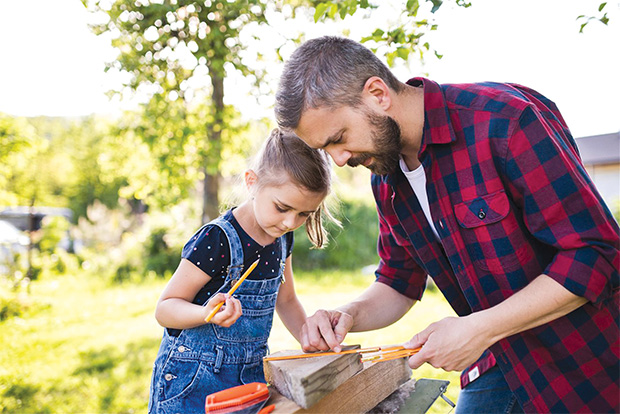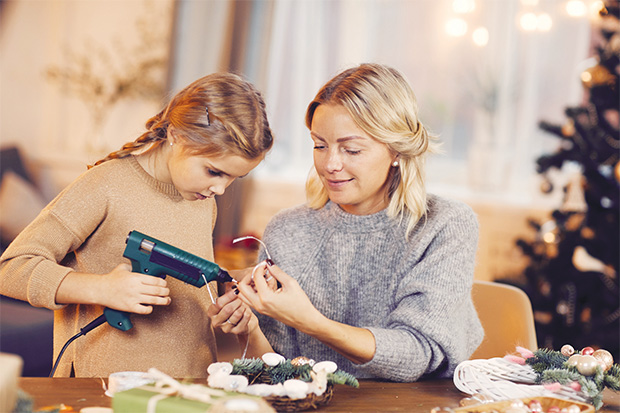It’s true at any age: The more do-it-yourself skills we can develop, the better control we’ll have when it comes to maintaining our homes, vehicles and the other material assets that help us lead productive and enjoyable lives.
That’s why it’s so important to keep teaching our children such practical skills as they grow into adulthood. As kids learn how to handle their own tasks surrounding home maintenance, small engine repair, auto mechanics and other elements of day-to-day life, they develop confidence in their own abilities and hone the problem-solving skills that will help them succeed.
Further, when you take an active role in imparting such valuable “garage logic,” you can create bonding experiences that strengthen intergenerational relationships.
“Sharing a mutual goal, combining strengths, helping each other and negotiating decisions together can foster a sense of teamwork and bring people closer,” advises Kristen Mosier on bobvila.com. “And, of course, admiring a finished project is sweeter when shared.”
This holiday season, you may wish to invest in your child’s future by giving them the gift of practical DIY knowledge. Here are suggestions for making that happen.
Explore their areas of interest. Be proactive by talking to your child ahead of time about the skills he or she would most like to learn. Your teenager may wish to seize independence by learning how to repair her own car, while your green-thumbed youngster may be most enthusiastic about mastering the mechanics of your yard and garden equipment.
Share your area of expertise. If you are skilled in a certain category, you might feel especially proud and happy to pass that specific knowledge on to the next generation. Tell your children the story of how you acquired your own abilities, and explain why you’re excited to be sharing them with the next generation.
Establish good cleanliness and safety habits. Teach kids to prioritize a safe work environment by insisting on protective gear such as safety glasses, earphones, masks and gloves. Make sure everyone involved in the project participates in keeping floors, counters, tools and other elements cleared off, hazard-free and well organized.
Make tools part of your gift. When the majority of your lesson is finished, consider passing the physical tools you’ve used on to your child — or, buy them their own new set they can continue using once they leave your household. With its huge span of machinery, tools and equipment, Northern Tool + Equipment is a great place to walk the aisles and explore tools to help your child fill up their tool belt.
“We’re in the business of providing the essential tools and gear that people need to handle any tough job that comes their way, whether they’re pros or DIYers,” says Suresh Krishna, president and CEO of Northern Tool. “The gift of high-quality tools is one that can keep on giving for years to come, and can help instill pride in working with one’s hands at an early age.”
Create maximum fun. Make sure to create positive memories by making your experiences enjoyable for everyone involved. That means anticipating mistakes, remaining patient, explaining how errors can be corrected and making sure your child knows they’re not expected to know everything right away. Ideally, you’ll both look back on your experience with fondness, not confusion or regret.
Celebrate your achievements. Once your child has mastered a skill, praise them for having the patience and attentiveness to see it through. Remind them of how the knowledge they’ve learned can serve them well in the future, and celebrate their new achievement as a family however and whenever that’s appropriate.
This season, helping your child learn a new and practical skill could be a wonderful alternative to a more traditional gift. Consider a present of your time and expertise that could make your child more knowledgeable, confi-dent and self-sufficient as they face life’s everyday challenges.
This article is courtesy of Brandpoint.

